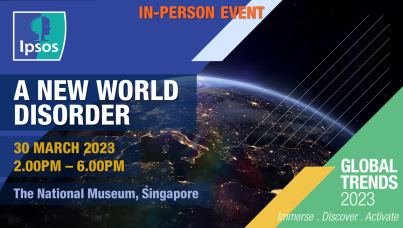85% APAC consumers agree ' I would like more control over decisions about my health'

The pandemic led to many changes in healthcare, which will be felt for decades to come, particularly in developed markets. Chief among these was speeding up the availability of virtual visits, allowing patients to consult with specialists and physicians around the world. This democratisation has increased competition in the market by removing some of the physical boundaries of care.

Post-pandemic, ageing populations and longer waiting lists, along with a rising demand for health services, are challenges that the healthcare systems are struggling to meet.
Covid-19 highlighted how critical doctors, nurses and support staff are to our collective health, and how little they are recognised. In much the same way that we've seen a shifting power balance in other workplaces, healthcare workers are organising to lobby and strike for better working conditions and compensation.
As populations continue to age, this will place more stress on healthcare system providers. Governments will urgently need to debate how healthcare should be monitored, paid for and delivered. And as technology continues to pervade everyday life, we'll see greater advances in remote biometrics and AI-enabled early detection of diseases - which will be especially important with over-worked providers and a greater population of patients with serious illnesses.
Thought Starters
The boundaries of health and wellness are blurred; how can your organisation help from outside the healthcare industry?
How can your brand help deliver on emerging needs in healthcare - for both patients and providers?



